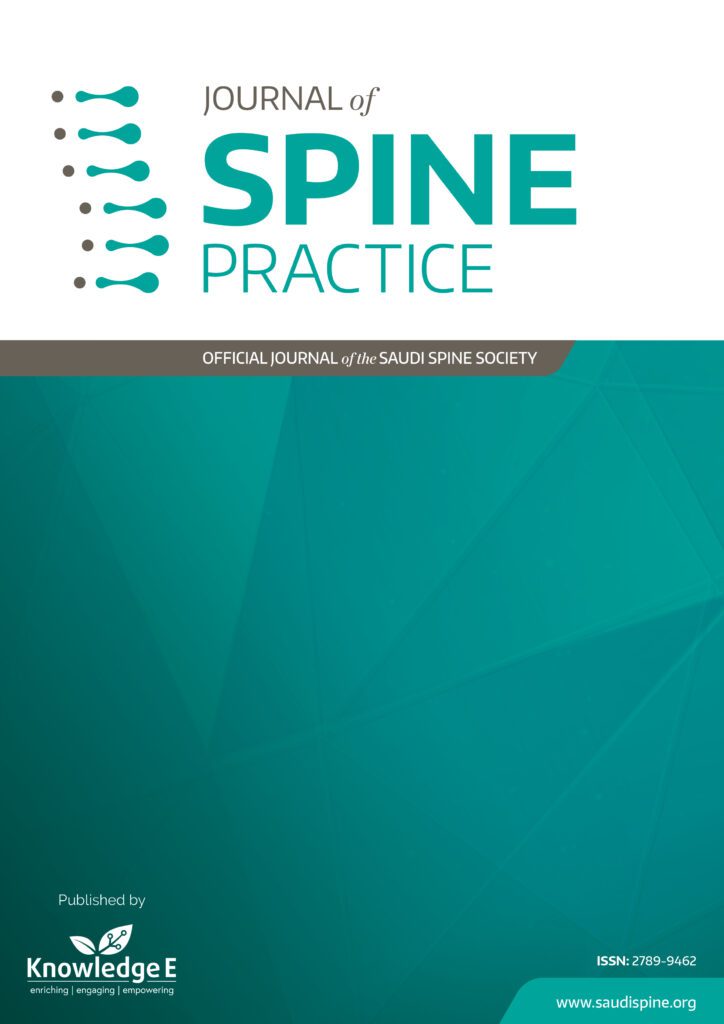
Journal of Spine Practice
ISSN: 2789-9462
Leading research in all spine subspecialties focusing on orthopaedic spine, neurosurgery, radiology, and pain management.
Knowledge and Attitude Toward Lumbar Puncture Among Medina Population
Published date:Nov 07 2021
Journal Title: Journal of Spine Practice
Issue title: Journal of Spine Practice (JSP): Volume 1, Issue 1
Pages:29
Authors:
Abstract:
Introduction: Lumbar puncture (LP) is one of the invasive procedures performed to obtain information about cerebrospinal fluid. It has diagnostic and therapeutic purposes for various neurological cases. Previous studies among different populations have indicated that there is a lack of research focusing on individuals’ knowledge and attitude toward LP. Patient who refuse LP may be exposed to unneeded hospital admission, or unnecessary empirical antibiotic treatment. A literature search found a lack of studies regarding LP knowledge and perception among Al-Medina residents. To address that gap, this study aimed at assessing the knowledge and attitude toward LP among the Al-Medina population.
Methodology: A cross-sectional study was conducted among adults 18 years of age residing in Medina, Saudi Arabia. An online survey using a self-administrated questionnaire that included demographic characteristics, knowledge, and attitude questions was randomly distributed from January 2020 to August 2020. The questionnaire was pretested and validated (Cronbach’s alpha = 0.701).
Result: A total of 512 participants were included: 51.3% of the participants were aged between 18 and 25 years; 85.5% were female; and 68.6% had a bachelor’s degree. Most participants (65.6%) showed a poor knowledge of LP. Of the total participants, 29.7% had a poor attitude toward LP, while 69.7% had a good attitude. A significant positive correlation was found between knowledge and attitude toward lumbar procedures (r = 0.186, p < 0.001). Respondents who received their information from a healthcare worker had the highest level of knowledge (p < 0.001). A positive significant correlation was found between attitude and age; younger participants had a better attitude (p < 0.001).
Conclusion: This study assessed the knowledge and attitude toward LP, and the relation between them which leads to a great impact on diagnosis and treatment. The study demonstrated that few participants had a previous experience with LP. There is a crucial need to know how these personal LP experiences affect the decisions and attitude toward LP in the future. The study also showed that the level of knowledge about LP is relatively poor among the public. The level of awareness should be raised to improve patient’s understanding toward LP. Interventions are needed to scale up the level of knowledge about LP. Some potential interventions include: intensifying health promotion campaigns, increasing involvement of physicians in patients’ education to improve knowledge, as well as maintaining the quality and reliability of information provided concerning LP and carrying out further research to evaluate the effect of intervention programs on the knowledge and attitude.